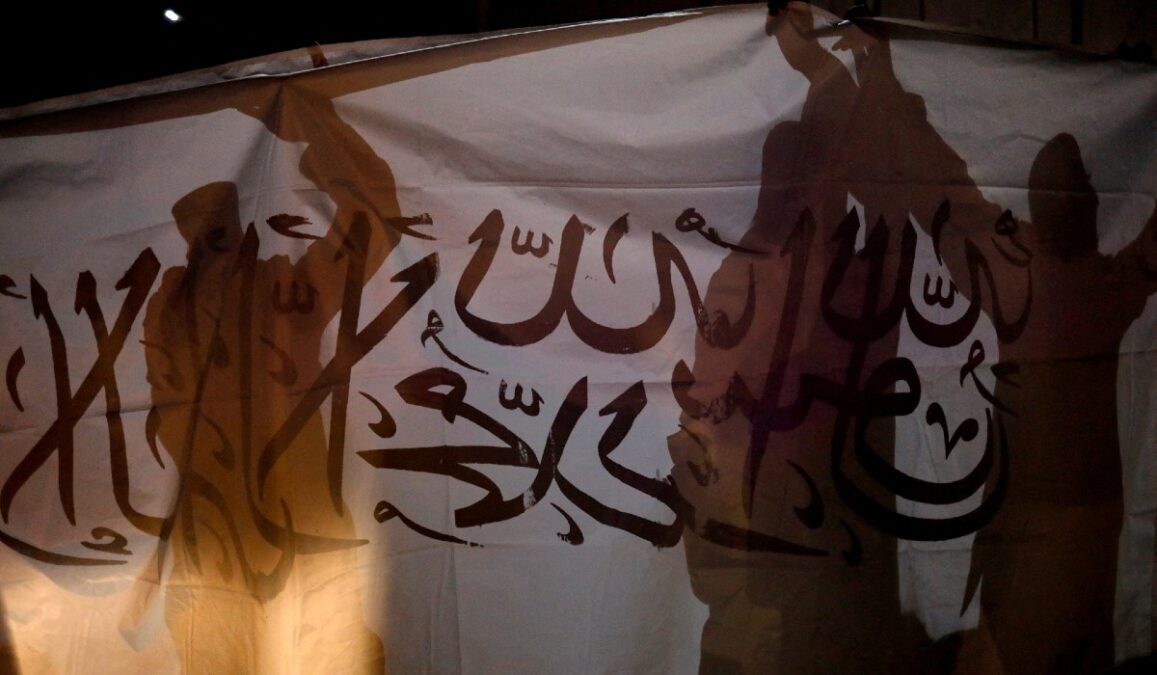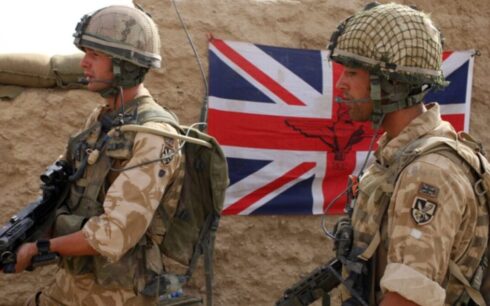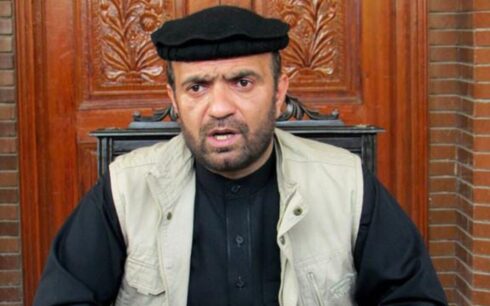The U.S. Department of State’s 2024 Trafficking in Persons Report highlights severe issues in Afghanistan, noting “a pattern of employing or recruiting child soldiers and sexual slavery by the Taliban, commonly known as bacha bazi, a practice where men exploit boys for social and sexual entertainment”.
ُThe report says that observers report cases of bacha bazi by the Taliban and nearly all armed groups.
Bacha bazi survivors reported to NGOs an “overwhelming understanding that bacha bazi is committed by the powerful, including community leaders, and, in previous years, military commanders, police, and government officials of the pre-August 15, 2021, government, the report says.
Failure to Meet Standards
The report states that “Afghanistan does not fully meet the minimum standards for the elimination of trafficking and is not making significant efforts to do so; therefore, Afghanistan remained on Tier 3.” It further explains, “During the reporting period, Afghan ministries and other public sector institutions did not take meaningful steps to eliminate trafficking,” the report says.
Child Soldiers and Sexual Slavery
The report emphasizes that “the Taliban engaged in a pattern of employing or recruiting child soldiers and a pattern of sexual slavery by the Taliban (bacha bazi).” The report criticizes the Taliban for “failing to address labor and sex trafficking and for not identifying or protecting any trafficking victims.”
“The Taliban and other armed groups recruit and use children in combat and support roles. The Taliban often recruits children through coercion, fraud, and false promises. Groups such as ISIS-Khorasan (ISIS-K) and the National Resistance Front use children in direct hostilities to plant and detonate improvised explosive devices, carry weapons, spy, and guard bases,” the report says.
“The Taliban and groups such as ISIS-K forcibly use child soldiers and imprison children associated with other armed groups, including potential trafficking victims. The Taliban recruits children from madrassas in Afghanistan and Pakistan that provide military training and religious indoctrination,” the report says.
“The Taliban encourages relatives to send their children to join its ranks to expand its trusted personnel,” the report says.
The report states that armed groups target children from impoverished and rural areas, placing displaced children at a higher risk of recruitment or use by armed groups.
The Taliban maintains detention facilities in which it forces detainees, including child and adult sex trafficking victims charged with “moral crimes,” into unlawful prison labor or conditions indicative of forced labor, the report says.
According to the report, prior to August 15, 2021, Afghan security forces and non-state armed groups unlawfully recruited and used children in combat and support roles.
Rights and Vulnerabilities
“The Taliban continued to undermine the rights of women, members of minority groups, and other vulnerable populations,” the report states, adding that it “hindered the work of NGOs, exacerbating vulnerabilities to trafficking and obstructing victim protection efforts.”
Recommendations
The report offers several recommendations, including to “cease the unlawful recruitment or use of children by the Taliban, including at the local levels, and demobilize children from all armed groups with adequate protection and reintegration support.”
The report also calls for “enforcement of the ban on the use of children for sexual slavery (bacha bazi) within the Taliban ranks.”
Further, the report recommends increasing efforts to “identify trafficking victims, including by screening vulnerable populations,” and ensuring that “victims are not penalized for unlawful acts committed as a direct result of being trafficked.”
The report calls for “increased cooperation with civil society organizations to assist vulnerable populations, including male and female trafficking victims, and reopening victim shelters throughout the country.”
The report also urges Afghanistan to “enact and implement a comprehensive anti-trafficking law that criminalizes all forms of trafficking in persons” and to “formally convene an inter-ministerial anti-trafficking commission to coordinate efforts.”
Prosecution
The report criticizes Afghan ministries and public sector institutions for “not enforcing anti-trafficking laws” and states that “the Taliban made no anti-trafficking law enforcement efforts.”
The report notes that the Taliban has not clarified if pre-August 15, 2021, laws related to trafficking remain in effect.
Observers report that the Taliban “has purportedly revoked Afghanistan’s constitution and criminal code, including child protection laws,” leading to varied enforcement and local leaders issuing their own edicts.
The report states that the Taliban prohibits lawyers from referencing the pre-August 15, 2021, penal code in court, “leaving vulnerable populations without protection.”
Police and Accountability
The Taliban-controlled police did not report any trafficking crime investigations, prosecutions, or convictions, including those involving Taliban members, the report says.
“Observers note challenges in distinguishing human trafficking from migrant smuggling,” the report states, highlighting significant impunity and a lack of formal accountability.
The report notes that although bacha bazi is officially banned, “the practice continues post-Taliban takeover, with some Taliban members implicated.”
Protection
The report states that Afghan ministries and public institutions “did not take steps to identify or provide services to trafficking victims.”
The Taliban also “did not report any protection efforts,” the report says.
An NGO operated two shelters for child victims of crime and homelessness in Kabul, “assisting two demobilized child soldiers during the reporting period,” the report says.
The Ministry of Labor and Social Affairs (MoLSA) operated an orphanage for boys, which “could assist trafficking victims,” but there were no Taliban-run shelters for adult victims, the report says.
Civil society representatives face significant challenges in providing protection services due to Taliban resistance, lack of capacity, and limited funding, the report states.
“Observers have reported the Taliban’s firm resistance to discussing sex trafficking and allowing protection services for victims, particularly women and girls,” the report says.
The report states that the Taliban severely limits NGO work by “prohibiting Afghan women from working at NGOs outside healthcare and education sectors,” and detaining female staff without a mahram (male chaperone), affecting the availability of trafficking victim services.
Detention and Informal Mechanisms
The report states that “the Taliban often places child trafficking victims in detention centers alongside adults,” where they experience forced labor, torture, and sexual abuse, without access to lawyers.
The report notes that police frequently arrest street-begging children without screening for trafficking indicators.
While there is an informal referral mechanism for local police to refer child victims to the MoLSA child protection department, “services remain severely under-resourced,” the report says.
Punishments and Reporting
The report states that “the Taliban uses hudud punishments for perceived moral crimes,” discouraging sex trafficking victims from reporting exploitation.
Observers noted that the Taliban “inappropriately penalized victims of sex trafficking,” the report says.
The report states that bacha bazi victims are hesitant to report their exploitation due to fear of punishment and social stigma.
A Taliban commission to address abuses, including child demobilization, “did not report any children demobilized during the reporting period,” the report says.
Prevention
The report states that Afghan ministries and public institutions “did not take steps to prevent trafficking.”
The Taliban did not report any anti-trafficking efforts, the report says.
“The Taliban’s Deputy Minister of Interior was responsible for anti-trafficking efforts,” and MoLSA, in coordination with security agencies, enforced laws related to forced child labor, the report states.
Despite many vulnerable Afghans being internally displaced or migrating, “the Taliban did not implement measures to prevent their exploitation or prevent children from recruitment in combat roles,” the report says.
The report notes that during the reporting period, hundreds of thousands of Afghans were deported or returned from Pakistan and Iran.
Observers reported that the Taliban “cooperated with humanitarian actors at border checkpoints,” providing returnees with short-term shelter, cash, and assistance.
However, the Taliban “did not make efforts to reduce the demand for commercial sex acts,” the report says.
Trafficking Profile
The report states that human traffickers “exploit domestic and foreign victims in Afghanistan and Afghan victims abroad,” with internal trafficking more prevalent.
The report notes that traffickers exploit men, women, and children in bonded labor in industries such as brickmaking and carpet weaving.
“The economic crisis, drought, and food insecurity increase the risk of exploitation, especially in bonded labor,” the report says.
The report states that since the Taliban takeover, “vulnerabilities to exploitation have intensified,” damaging victim support networks and increasing internal displacement.
The report highlights that IDPs, Afghan returnees, undocumented migrants, and refugees are at high risk of exploitation, as are those associated with the pre-August 2021 government.
Opium Cultivation and Climate Change
The report states that “opium poppy cultivation has dropped significantly due to the Taliban’s ban,” increasing vulnerability among those who depended on this trade.
“Climate change affects agricultural production,” increasing irregular migration and trafficking risks, the report says. Recent earthquakes have further compounded community vulnerabilities, the report states.
Child Exploitation
Most Afghan trafficking victims are children forced to work in various sectors, including carpet making, brick kilns, domestic servitude, and sex trafficking (bacha bazi), the report says.
“Civil society experts indicate boys are more vulnerable to trafficking than girls,” the report notes.
Children are often forced to migrate for work, and some families “sell” their children into labor or sex trafficking to settle debts, the report states.
Armed Groups and Child Soldiers
The report states that “the Taliban and other armed groups recruit and use children in combat and support roles,” often through coercion and false promises.
The report notes that groups like ISIS-Khorasan also use children in direct hostilities. “The Taliban recruits children from madrassas and encourages relatives to send their children to join its ranks,” the report says. Displaced children are at higher risk of recruitment, the report notes.
“The Taliban forces detainees, including child sex trafficking victims, into unlawful prison labor,” the report says.
Bacha Bazi
The report states that “traffickers exploit young children in bacha bazi,” with cases reported by the Taliban and nearly all armed groups.
The report notes that bacha bazi survivors report that the practice is “committed by powerful community leaders and officials.”
Women’s and Girls’ Rights
The report states that restrictions on women’s and girls’ movement and rights, combined with limited access to employment and education, “increase their vulnerability to trafficking and child and forced marriage.”
The report notes that women-headed households are at increased risk of poverty and trafficking.
“The Taliban’s enforcement of the hijab decree restricts women’s movement, and ethnic minorities are targeted,” the report says.
Women are often reluctant to seek help due to fear of “honor killings” or punishment for “moral crimes,” the report states.
LGBTQ+ Vulnerabilities
“LGBTQ+ persons are among the most vulnerable to exploitation due to lack of access to social services and coercion,” the report states.
The report notes that the Taliban attacks and threatens LGBTQ+ individuals, and many face discrimination and violence.
Ethnic and Religious Minorities
The report states that “members of ethnic and religious minority groups, such as Hazara Shia, Ahmadi Muslims, Sikhs, Hindus, Bahais, and Christians, are increasingly vulnerable to exploitation due to threats from the Taliban and other groups.”
The report notes that many are forced to hide or flee, increasing their risk of trafficking.
Exploitation Abroad
The report states that Afghan men, women, and children seeking employment abroad are often exploited in labor or sex trafficking.
“Many refugees fear deportation and are less likely to report exploitation,” the report notes.
The report states that traffickers in Iran and other countries exploit Afghan children in forced labor and criminal activities. Afghan boys are also subjected to bacha bazi in Europe, the report says.
Military Recruitment
“The Iranian government and Islamic Revolutionary Guard Corps compel Afghan migrants, including children, to fight in militia groups in Syria,” the report states.
The report notes that former Afghan soldiers are at risk of recruitment to fight in Russia’s invasion of Ukraine.
The report states that migrant smuggling networks also exploit Afghan nationals in Europe.
The report provides a detailed account of the grave challenges Afghanistan faces in addressing human trafficking and the significant efforts required to protect vulnerable populations.





